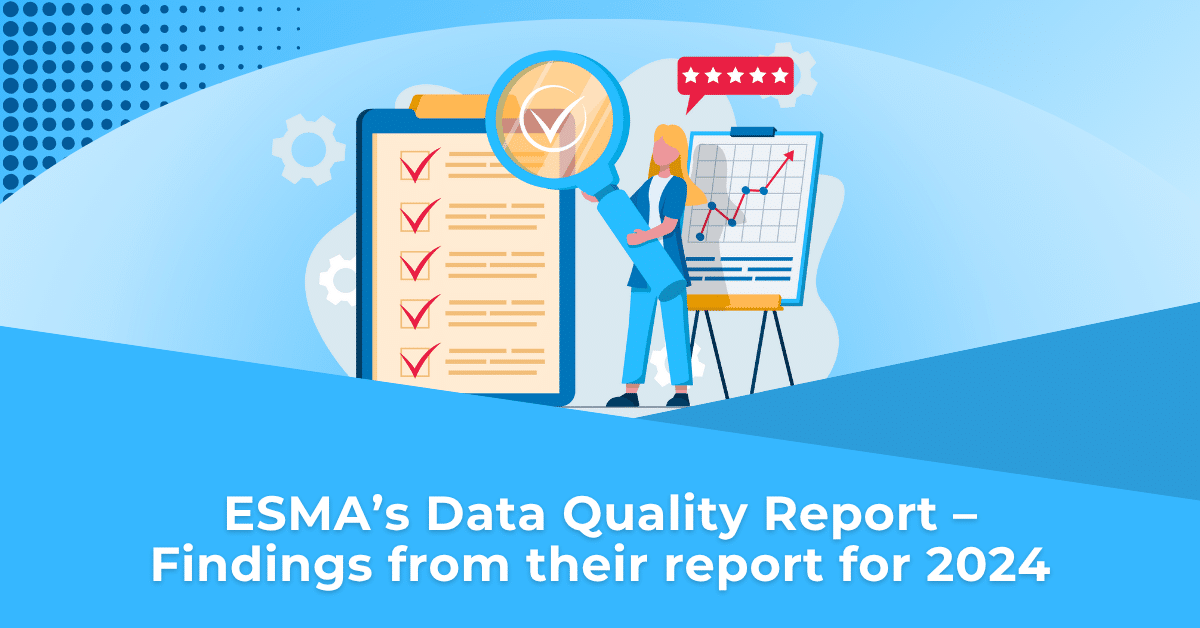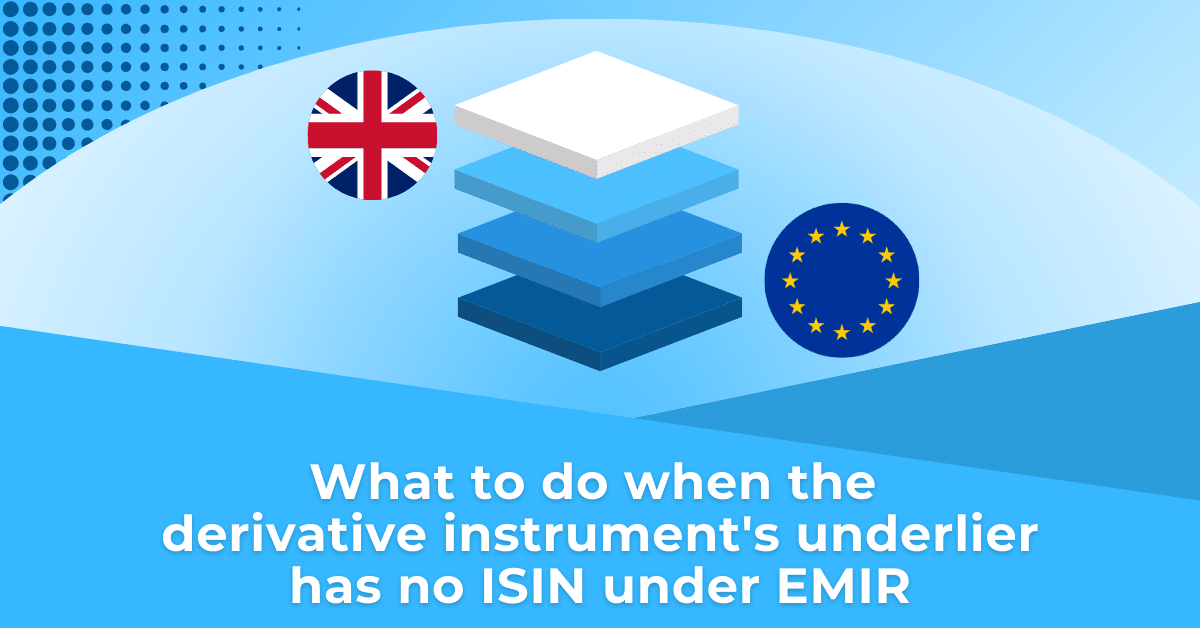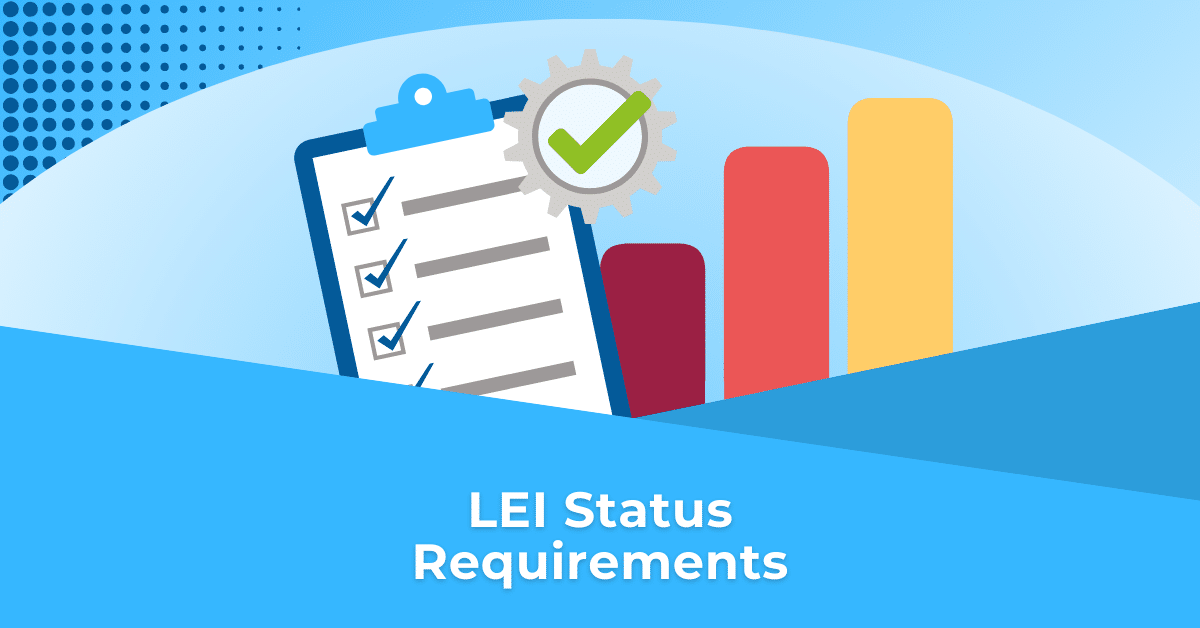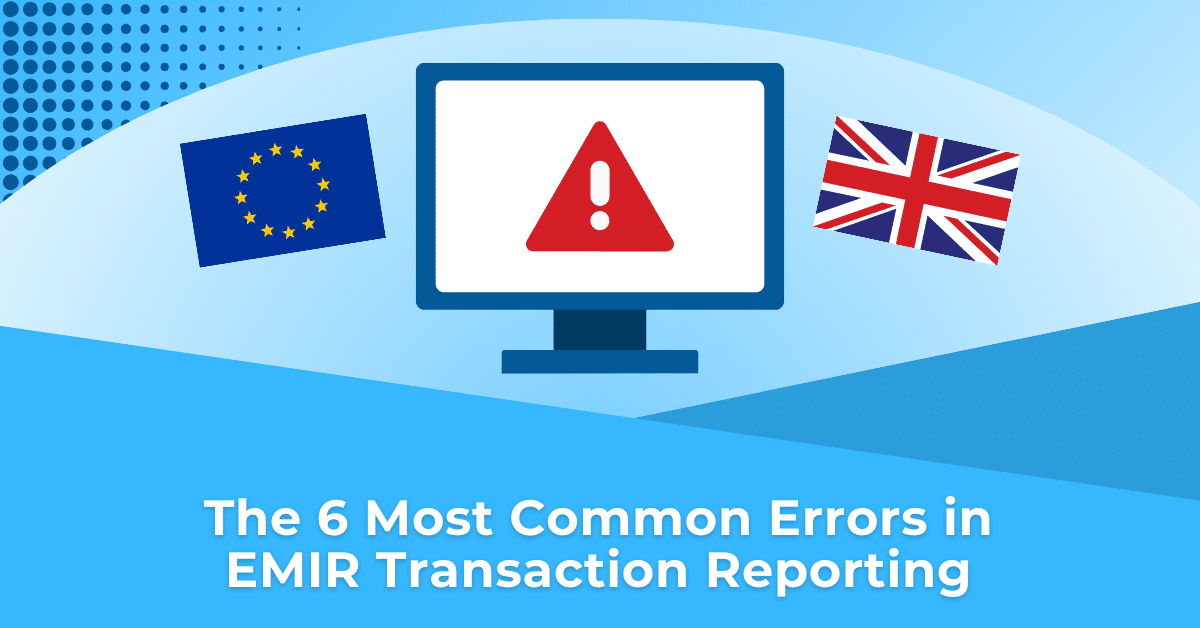EMIR Reporting
Simplified
European Market Infrastructure Regulation
Under the European Market Infrastructure Regulation (EMIR), all counterparties are required to report details of any derivative contract they have concluded, or which the counterparty has modified or terminated. Due to Brexit, the EU regulations have been onshored as UK EMIR under the European Union (Withdrawal) Act 2018. On this page, EMIR refers to both EU and UK EMIR unless otherwise specified.
What does it stand for?
European Market Infrastructure Regulation
What does it focus on?
Monitoring systemic risk
Purpose
Regulate OTC derivatives transactios in European Union
Reporting obligations
All counterparties are required to report details of any derivative contract they have entered, modified or terminated.

EU EMIR
The original EMIR remains in force for EU member states. It continues to evolve under ESMA.
VS

UK EMIR
The EMIR regime was onshored into UK regulation. Over time it will diverge from the EU version as the FCA updates it.
Read more about the difference between EU EMIR and UK EMIR
EMIR Reporting Requirements Involve:
Reporting all derivative contracts - both over-the-counter (OTC) and exchange-traded;
Clearing eligible OTC derivatives;
Measures to reduce counterparty credit risk and operational risk for bilaterally cleared OTC derivatives;
Common rules for central counterparties (CCPs) and for Trade Repositories (TRs); and
Rules on the establishment of interoperability between CCPs.
Who has an EMIR reporting obligation?
EMIR requires all counterparties and CCPs to report details of any derivative contract (with the underlying asset classes – interest rate, FX, credit, equities and commodities) they have concluded and of any modification or termination to TRs.
EMIR RECOGNISES 2 TYPES OF COUNTERPARTIES TO A CONTRACT:
Financial Counterparties (FC) – investment firms, fund managers, banks, insurers etc.; and
Non-Financial Counterparties (NFC) – entities not qualified as a financial counterparty, including those not involved in financial services.
EACH COUNTERPARTY MUST REPORT THEIR LEG OF A TRADE UNLESS:
one counterparty agrees to report on behalf of another counterparty by prior agreement;
a counterparty to a trade has delegated the reporting obligation to a third-party; or
a trade is executed between a FC and a NFC- where the FC will be responsible and legally liable for reporting on behalf of itself and the NFC-.
Where one counterparty reports on behalf of another counterparty, or a third-party reports a trade on behalf of one or both counterparties, the report details will include the full set of details as required by each counterparty.
Stay in the know
Sign up to TRAction's newsletter
trade reporting
What to report and to whom?
Financial Counterparties (FC) and Non-Financial Counterparties (NFC) trading in derivatives must report details of all derivatives trades via a TR. This includes all the details of trades and any event thereafter that affects the valuation or the terms of the trade. It also includes identification of the country of the counterparty (country of incorporation for legal entities, country of residence for natural persons).
Any derivative contract is required to be reported under EMIR reporting requirements, and includes:
- financial derivatives settled physically or in cash;
- commodity derivatives that must or may be cash settled;
- physically settled commodity derivatives that are traded on a regulated market; and
- physically settled commodity derivatives that have characteristics of other derivative financial instruments.
When do reports have to be made?
Reports are required to be submitted to a registered TR no later than one working day after the trade has been made (T+1).

How can we help you?
TRAction can provide you with delegated reporting solutions in accordance with the reporting requirements outlined above. We help you understand your EMIR trade reporting obligations and completely simplify your reporting process. Depending on how our client’s system works, TRAction has 3 different reporting methods ready to be tailored to our clients’ needs.
If you want to learn about our services, please get in touch with us.
TRAction can provide you with delegated reporting solutions in accordance with the reporting requirements outlined above. We help you understand your EMIR trade reporting obligations and completely simplify your reporting process. Depending on how our client’s system works, TRAction has 3 different reporting methods ready to be tailored to our clients’ needs.
If you want to learn about our services, please get in touch with us.
e-book
Reporting Guides
Need help with your reporting obligations and compliance strategy?
TRAction has developed multiple reporting guides to help you along your reporting journey including our popular The User Friendly Guide to Transaction Reporting in Europe.
Get free access to our guides today at the button below.
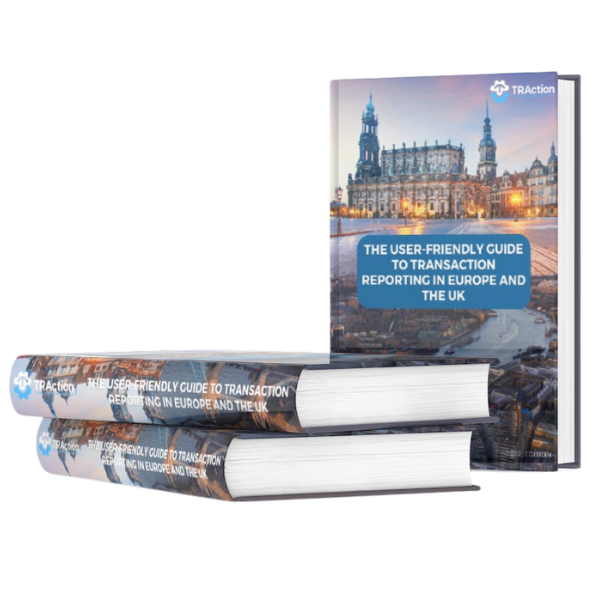
Regulatory Resources
Further information
Understanding your reporting obligations and determining whether a third party reporting solution will save you costs and internal resources are important steps towards compliance with your trade and transaction reporting requirements. Choosing a strategic approach to compliance will give you a competitive advantage and ensure you avoid penalties for non-compliance. To make things easy, we’ve created the User Friendly Guide to Transaction Reporting in Europe. Read more.
There are a number of reporting regimes including EMIR, MiFID II/MiFIR, SFTR and Best Execution, all of which affect Investment Firms (IFs) in different ways. Read more to see the regulatory reporting required by IFs.
TRAction has outlined the key differences between EMIR and MiFIR. Our team has also pointed out some of the issues that investment firms need to be aware of under EMIR and MiFIR, so that you can stay compliant with the trade/transaction reporting requirements. Read more.
As a delegated reporting service provider, TRAction is asked a lot of questions regarding EMIR, MiFIR and SFTR reporting. That’s why our team has put together some of our most frequently asked questions, so that you can learn how to seamlessly report transactions under multiple regimes. Read more.
We’ve identified the most common errors (for both EU and UK EMIR) in the data we receive from our clients:
- Original Not Found
- Invalid Lifecycle Transition
- ‘Valuation timestamp’
- ‘Country of the counterparty 2’ field populated with
- invalid country code
- UTI reused for a new trade
Invalid LEI used
ESMA asks for any collateral transferred, between two counterparties to a transaction, to be reported in EMIR Trade Reports. Collateral can be reported on a per position basis or on a portfolio basis. Read more.
While EMIR and MiFIR trade and transaction reporting rules allow reporting entities to delegate their reporting obligations to a third party, they remain ultimately responsible for ensuring the details of their transactions are reported correctly and accurately under Art 9(1) of EMIR & Art 26(7) of MiFIR. Read more.
Each Investment Firm (IF) is required to make a quarterly assessment on its previous 6 months’ data to determine if it qualifies as a Systematic Internaliser (SI). Where an IF is classified as a SI, it will be obliged to meet the pre- and post-trade transparency requirements. Read more.
We all know that meeting all the requisite trade/transaction reporting obligations for EMIR, MiFID II/MiFIR and SFTR can pose a considerable cost to an investment firm. While the regulatory burden is not going to disappear, it can be minimised by outsourcing and choosing the most cost-effective and efficient option for you. Read more.
There are certain fields within the reporting regimes of EMIR, MiFIR, SFTR, ASIC, MAS and Canada, which require populating with an LEI.
Check out our article, where we detail regimes and LEI fields for population and validation.
A commonly asked question by many trade reporting entities is what value to use when the underlier to the relevant instrument has no ISIN under EMIR. (An ISIN is an international securities identification number which is a product identifier code often required by trade reporting regimes – EMIR and MiFIR).
Where no ISIN is available for equity trades or for the identifier of the relevant derivative’s basket’s constituents, then ESMA’s stated best practice is to use the ISIN for the European Financial Stability Facility. We discuss how to populate the ISIN in detail in this article. Click here to read more, or check out our insightful video here.
ESMA has released its Report on Quality and Use of Data (Report) for 2024 which looked into data reported under regulations that are within EMSA’s remit.
Although the Report covers data reported under EMIR, MiFIR and SFTR, there is emphasis on the outcomes of EMIR Refit since its implementation in April 2024 which impacted a large number of reporting counterparties and trade repositories.
The Report also contains an overview of sanctions imposed by the National Competent Authorities (NCAs) on reporting obligations (which has not been considered in ESMA’s previous data reports). Click here to read more.
Pricing packages
How much does it cost?
We charge a combination of an account management fee and a cost per transaction/position. Contact us for a quote, or view our pricing page for more information.
EMIR Reporting
-
Field mapping logic
-
Portal access
-
Product/symbols setup
EMIR Refit
video
UK Refit: Top 6 changes you need to know
UK EMIR Refit went live on 30 September 2024, and we’ve created a video and article highlighting the top 6 changes you need to know to stay ahead. Ensure that your firm is prepared for these major regulatory changes.

Test Your Reportability
Determine what you are required to report under EMIR, MiFIR, and MAS regimes with our free Assessment Tools.
Simply answer a few questions about your business and our Reporting Assistant Reggy will calculate your reporting obligations.
Contact us
Can't find the answers you're looking for?
